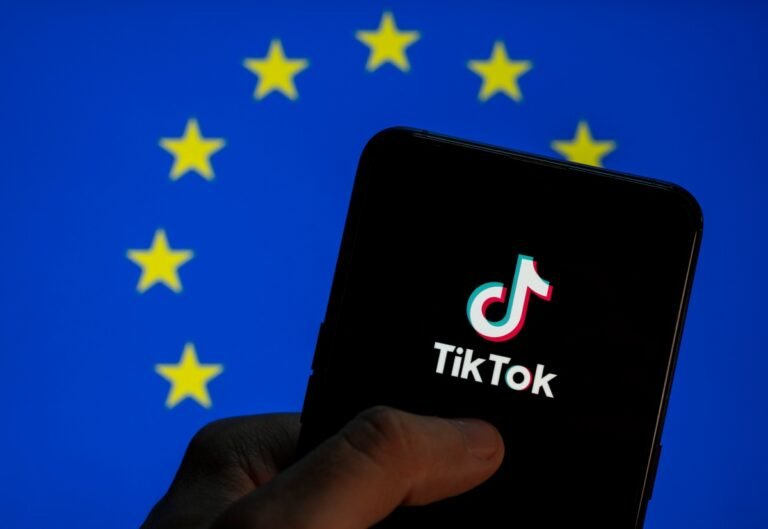
Silence Laboratories, a startup that builds infrastructure using multiparty computation (MPC) to help enterprises keep data private and safe, said it has raised a $4.1 million funding round.
Pi Ventures and Kira Studio co-led the recent funding, which brings its total raised to $6 million, along with angel investors.
The startup will use the funding to scale its teams and beef up its R&D pipeline.
The outfit started as a multifactor authentication (MFA) company and pivoted its business to building a cryptographic security firm.
It also recently launched Silent Compute, which lets corporations collaborate on processing information without revealing their own private data to third parties and enrich insights while maintaining compliance and trust.

The European Union is formally investigating TikTok’s compliance with the bloc’s Digital Services Act (DSA), the Commission has announced.
Although the EU’s concerns over TikTok’s approach to content governance and safety predate the DSA coming into force on larger platforms.
Commenting in a statement, Margrethe Vestager, EVP for digital, said:The safety and well-being of online users in Europe is crucial.
The EU may also accept commitments offered by a platform under investigation if they are aimed at fixing the issues identified.
In TikTok’s case the platform informed the bloc last year that it had 135.9M monthly active users in the EU.

At Prosus, this has involved guiding startups through the GenAI landscape, helping them not just adapt, but also win in a market that is rapidly transforming.
In this article, I distill those learnings into a practical playbook for GenAI, aimed at helping startups to not only survive but also thrive in the GenAI era.
GenAI value creationBalancing protective measures, like data protection protocols, with progressive strategies, such as AI-driven product rollouts, is essential.
Disruption diagnostics: Dissect risk and readinessIt is crucial to understand your company’s current standing in relation to GenAI disruption.
This involves a thorough analysis of risk exposure and operational readiness, which provides a foundation for a robust GenAI strategy.

These asks are specifically in relation to requirements that platforms provide data access to researchers investigating systemic risks in the European Union.
“Access to data by researchers is key to ensure accountability and public scrutiny of platforms’ policies.
So, basically, step forward and take a bow Wikipedia — which might just be the only VLOP that’s getting things right (or, well, less wrong) when it comes to providing data access for researchers.
But, under the DSA, they must facilitate data access for research into so-called systemic risks, such as disinformation, child safety issues, gender-based violence and mental heath concerns.
While 17 RFIs may sound like a lot of regulatory action we’re still at an early stage of the Commission’s oversight of the data access for research issue.

Governance, risk management and compliance — GRC for short — remains one of the most active startup areas in terms of VC investments.
GRC helps organizations better manage risk while staying in compliance with regulations — and there’s an increasing number of regulations to worry about.
“Anecdotes is redefining compliance and risk management by transforming it from a labor-intensive task with skyrocketing associated costs into data-oriented processes.”Anecdotes’ platform automatically collects GRC-related “artifacts” (i.e.
Anecdotes’ competitors include VComply, a risk and compliance management startup that’s raised over $10 million in venture capital so far, and Cypago, which aims to automate compliance and governance for companies.
Kuznitsov asserts that Anecdotes is well-positioned, though, with around 100 customers including Snowflake, Coinbase SoFi, Grafana and Payscale.

Application programming interfaces (APIs) power the modern internet, including most websites, mobile apps, and IoT devices we use.
This phenomenon, often referred to as the “API economy,” is projected to have a total market value of $14.2 trillion by 2027.
How AI integration changed the API landscapeVarious kinds of AI have been here for a while, but it’s generative AI (and LLMs) that completely changed the risk landscape.
Many AI companies use the benefits of API technologies to bring their products to every home and workplace.
Various kinds of AI have been here for a while, but it’s generative AI (and large language models [LLMs]) that completely changed the risk landscape.

Even without Adobe, things don’t look too bad for Figma CB Insights estimates that Figma is still worth between $8.3 billion and $9 billionA failed acquisition often spells doom for the target company.
But despite its $20 billion takeover by Adobe not going through, there are reasons to think that Figma will be just fine.
That the online design company will get a $1 billion termination fee from Adobe will help soften the blow.
So, “no, startups, you’re not getting a breakup fee unless it’s a sizable enough deal where there is antitrust risk,” VC Ed Sim wrote on X.
But in the Adobe-Figma deal, where both companies knew that this risk was front and center, even a $1 billion fee seems only fair compared to the uncertainty ahead.

OpenAI is expanding its internal safety processes to fend off the threat of harmful AI.
In-production models are governed by a “safety systems” team; this is for, say, systematic abuses of ChatGPT that can be mitigated with API restrictions or tuning.
Frontier models in development get the “preparedness” team, which tries to identify and quantify risks before the model is released.
So, only medium and high risks are to be tolerated one way or the other.
For that reason OpenAI is making a “cross-functional Safety Advisory Group” that will sit on top of the technical side, reviewing the boffins’ reports and making recommendations inclusive of a higher vantage.

“Distributional is building the modern enterprise platform for AI testing and evaluation,” Clark told TechCrunch in an email interview.
Our platform is built for AI product teams to proactively and continuously identify, understand and address AI risk before it harms their customers in production.”Clark was inspired to launch Distribution after encountering tech-related AI challenges at Intel post-SigOpt acquisition.
While overseeing a team as Intel’s VP and GM of AI and high-performance compute, he found it nearly impossible to ensure that high-quality AI testing was taking place on a regular cadence.
“The lessons I drew from my convergence of experiences pointed to the need for AI testing and evaluation,” Clark continued.
The software offers organizations a “complete” view of AI risk, Clark says, in a pre-production environment that’s akin to a sandbox.

Digital asset risk infrastructure-focused Andalusia Labs, formerly known as RiskHarbor, has raised $48 million in a Series A round at a valuation “north of $1 billion,” the company exclusively shared with TechCrunch.
Alongside the fresh capital raise, Andalusia Labs opened its global headquarters in Abu Dhabi.
The $48 million will also be used to grow its product development and expand the team, said Raouf Ben-Har, co-founder of Andalusia Labs.
All aim to provide digital asset support to institutions, developers and consumers through their respective niches.
“Developers, developers, developers,” said co-founder Drew Patel.













